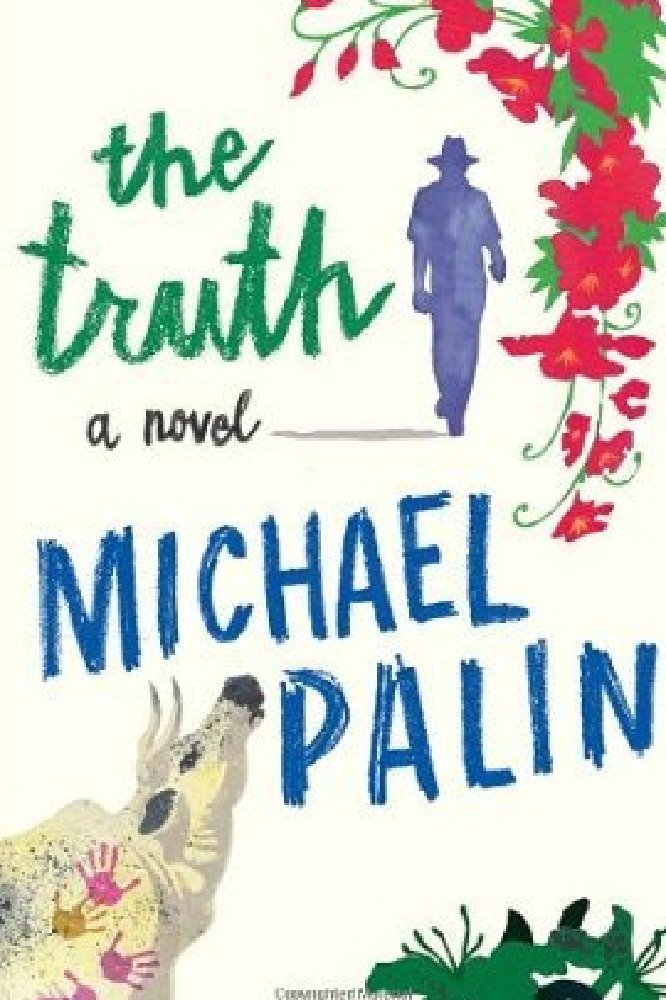
The Truth
Summary
Keith Mabbut is an idealist down on his luck. When a chance comes along to satisfy both his ideals and his bank balance he takes it. Commissioned to write the biography of Hamish Melville, an elusive, publicity-shy environmentalist, Mabbut finds himself lost in admiration for the sort of man he always wanted to be.
But when it comes to writing the book he finds that not everyone shares his admiration. As Mabbut fights to defend his subject and his story, his search for the truth leads him to some strange, dark places.
Background to the book
The idea for the story came to me in the summer of 2009. There were so many voices in public life claiming to be right about things that were diametrically opposed, so many people claiming that their opponents were liars, that the concept of the truth was becoming increasingly meaningless. I wanted my thoughts on the subject to be entertaining, wrapped in a good tale, and the novel seemed the best way to examine them. I'm not really comfortable with ideas unless I have characters to express them. I've always enjoyed creating characters, whether it's playing them or writing them. I like the dynamic of trying to get them to say what you want them to say whilst allowing them a life of their own.
I wanted the starting point of my story to be the uncontroversial assumption that truth is immutable. This is how I came up with the character of Keith Mabbut, a fully paid up 1970's idealist, who believed right and wrong to be clearly definable. I made him a teacher of creative writing and a part-time journalist. Someone who admired the likes of Orwell and Camus because they saw the world as it truly was. In fact, the real world of Keith Mabbut, as for most of us, is one of compromise and trade off, of doing the best in the circumstances. Which is why, when the story begins, Mabbut's private life is in turmoil and he is reduced to making money by writing the company-sponsored history of an oil terminal.
In his mid-fifties and numbed by years of compromise, Mabbut decides that the last chance he has to regain his self-respect is through fiction. Only by writing a novel will he be free to express his long-held beliefs about how the world has gone wrong and how this can be corrected.
This clarity of purpose is almost immediately threatened by an unexpected and potentially lucrative commission to write a biography. There's a two-fold problem. The publisher represents all that he despises : quick buck commercialism expressed in sales jargon he can't understand. Hamish Melville, the subject of the book, is however, the living embodiment of everything Mabbut admires : legendary environmentalist, man of the people, defender of the rights of the poor and disadvantaged.
Mabbut's life is in such a mess that he decides, in the end, that the perniciousness of the publisher will be outweighed by the moral cleansing of working with someone like Melville.
His time spent in India on one of Melville's operations seems to more than justify his decision. He returns, inspired by the experience, to write a book that will make the world a better place. Everything is suddenly going well. His private and his professional life draws strength and comfort from Melville's example. He accepts his wife's wish for a divorce and his daughter's need to a help a persecuted Iranian refugee.
Then comes a spectacular blow as the publisher refuses to accept the book, calling it so one-sided as to read "like a note to a new lover". This is just the start of a series of events that pound away at Mabbut's moral judgements one by one. His cherished ideals are dragged this way and that by the shattering realities of life. Bruised and battered, he survives to discover that the truth is only what happens.
The idea behind the book was to tell a good story by having my characters play around with whatever it is that we define as the truth. As Mabbut discovers, the truth is not something standing out there on a pure white charger. It is hydra-headed, devious and elusive. Mabbut reaches out for it but it melts away, only to reappear in quite a different shape.
Michael Palin London February 2012
Tagged in Michael Palin

